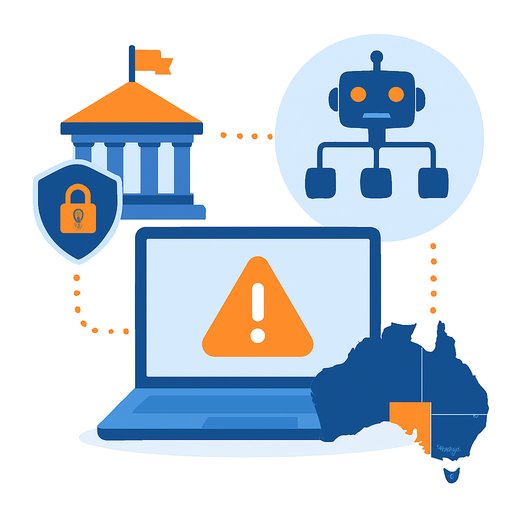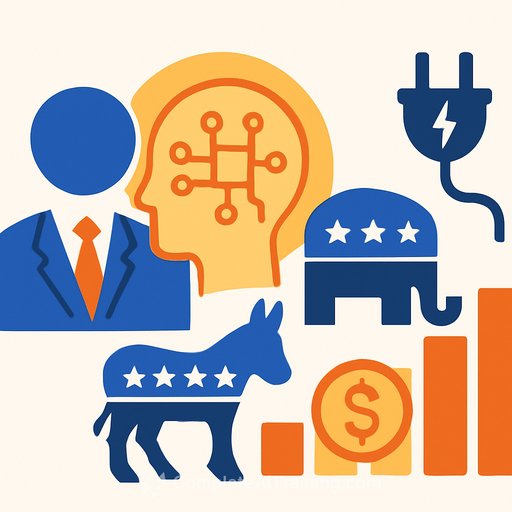Think AI for Government 2025: Responsible Innovation for Public Good
AI is changing how government delivers services, makes policy, and engages the public. The challenge for the UK public sector is clear: apply AI transparently and responsibly to earn and keep trust.
Think AI for Government 2025 brings data leaders, policymakers, and technologists together for practical collaboration. It focuses on what works, what needs guardrails, and how to create value for citizens without losing accountability.
Why this matters now
"AI, once a futuristic concept, is now widely used in digital tools and services. Governments are exploring its potential to improve policymaking, public services and administration, while also addressing its risks and separating realistic benefits from hype. This conference will examine how AI is currently used in the public sector, what skills and safeguards are needed, and how to ensure responsible, ethical and transparent use that maintains public trust."
A forward-looking agenda
Expect a full day of candid discussion and practical examples. Alex Jones, interim director at i.AI (part of DSIT), will deliver the government keynote, with panels focused on redesigning services around citizen needs.
- From Reactive to Agentic: How goal-oriented systems could help anticipate needs before they arise.
- Public perspective: How citizens view government AI, and what drives confidence.
- Monitoring and evaluation: Measuring fairness, performance, and impact.
- SMEs in delivery: Bringing practical innovation into live services.
- Demystifying AI: Cutting the myths and focusing on real use.
- The Future of AI in Government: Leaders share what's next and what to avoid.
Collaboration, trust and transparency
JP Bhamu, director of data & AI at DDaT, is direct about the value of cross-government forums: "Events like Think AI for Government bring people from across departments together to share ideas, experiences, and challenges around using AI responsibly. They play a vital role in improving transparency, building public trust, and ultimately helping deliver better value for taxpayers."
Mibin Boban, head of test & quality engineering for GOV.UK One Login at DSIT, adds: "If we can't clearly explain how these systems perform or how fair they are, then we risk losing the very trust that makes public service work. That's why I believe evaluation and assurance are not side activities - they're essential parts of responsible AI adoption."
Boban points to the xGov AI Testing and Assurance Framework as a practical step, helping teams "test AI systems for robustness, bias and safety, and have meaningful conversations with suppliers and partners about what 'good' looks like." Departments can also reference the UK's Algorithmic Transparency Recording Standard and the Generative AI Framework for HMG to support openness and assurance.
Beyond pilots: embedding AI into everyday operations
Matthew Lyon, chief analyst (DD of Data Science, Analysis and Economics) at the Cabinet Office, says many teams are moving from pilots to production. "This forum is happening at an important moment because many parts of government are trying to move beyond small-scale AI pilots and into real, everyday operations - and that's a much harder challenge, so now more than ever we must learn from each other on this."
For Lyon, the human impact is central. "AI should empower public servants by automating routine tasks, allowing them to focus on the complex, human-centric work where they add the most value. I think all of us are interested in automating the boring stuff."
The rise of intelligent agents
From industry, Deepak Shukla, public sector data & AI strategy lead at AWS, highlights a shift to agentic systems. "The industry is witnessing a significant shift toward AI agents - autonomous systems capable of reasoning, planning, and taking actions to achieve specific goals across complex multi-step workflows. These intelligent agents represent the next evolution beyond traditional single-purpose AI tools, enabling sophisticated business process automation and decision-making."
Practical steps for departments
- Start with clear policy or service outcomes and write down the risks you will not accept.
- Pick high-volume, low-risk tasks first; design for auditability from day one.
- Stand up an evaluation pipeline: data quality checks, bias testing, performance dashboards, human-in-the-loop review.
- Adopt shared standards for assurance and transparency; publish model cards or equivalent records.
- Engage SMEs early to test real-world constraints and reduce time to value.
- Set procurement requirements for explainability, red-teaming, and incident reporting.
- Invest in skills across roles (policy, delivery, commercial, security), not just data science.
- Create a cross-department community to share reusable patterns, playbooks, and lessons learned.
A shared purpose
As Boban notes, the strength of this forum is the mix of government, academia, and the third sector united by a common goal. "Together, we can shape an approach to AI that's ambitious but still grounded in accountability."
With the UK moving from experimentation to implementation, Think AI for Government 2025 is set to be more than a conference. It is a working forum for building the future of digital public service with trust at the core.
Upskilling your team? Explore practical AI courses by role at Complete AI Training.
Your membership also unlocks:






